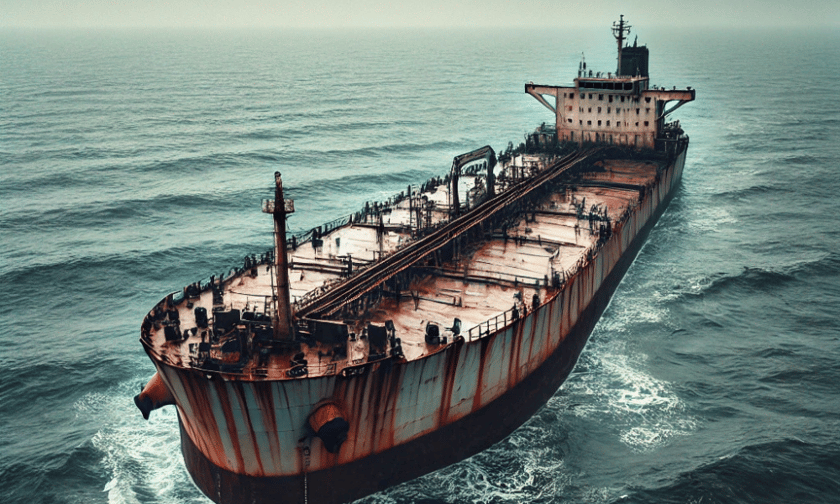

Moscow-based insurer Ingosstrakh, which has been sanctioned by the United States and the United Kingdom, is threatening legal action against Danish investigative publication Danwatch over its reporting on the company’s alleged involvement with Russia’s so-called shadow fleet of oil tankers.
The insurer has issued a pre-action letter to Danwatch, following three previous warnings, over a report published in March. That report linked Ingosstrakh to vessels transporting Russian oil from ports where oil was consistently being sold above the G7-imposed price cap.
The company has sought corrections, arguing that the report contained inaccurate statements about its role in insuring these vessels.
Danwatch editor Jesper Nymark said the legal threat is a strategic lawsuit against public participation, known as a Slapp, which he said is used by companies to discourage critical reporting.
“First they rattle the sabre, after which we have some time to adjust. And if we don’t, we could end up in a lawsuit where the goal is to drain us of money,” Nymark said in a report from the Financial Times.
Danwatch, which has fewer than 25 employees, has been targeted, Nymark said, as the smallest media organisation with limited resources. The Financial Times, which collaborated with Danwatch on stories about Ingosstrakh, has not received legal threats from the insurer.
Ingosstrakh was added to the UK’s sanctions list in June. While discussions have taken place within the European Union about including the company on its own sanctions list, there has not been sufficient support for the move.
A senior EU official involved in sanctions negotiations said that Ingosstrakh’s legal threats would be considered in upcoming discussions, and that they would support its inclusion.
The United States placed the insurer under sanctions earlier this month, stating that it had provided coverage for oil tankers transporting Russian petroleum products. Danwatch and the Financial Times reported that the company insured tankers in the shadow fleet, a group of vessels with opaque ownership structures used to circumvent sanctions and restrictions, including the G7 price cap.
Insurance plays a significant role in enforcing the cap, which aims to reduce Russia’s oil revenues while avoiding major disruptions to global markets. Western insurers are prohibited from covering tankers engaged in trades that breach the price limit.
Ingosstrakh has maintained that it does not insure such vessels, citing a clause in its policies that would cancel coverage for any ship operating in violation of sanctions.
However, the Financial Times and Danwatch reported that this clause could present environmental risks. If a tanker transporting non-compliant oil were involved in an accident, the vessel might be uninsured, potentially shifting clean-up costs to coastal states, including the UK and Denmark.
What are your thoughts on this story? Please feel free to share your comments below.
